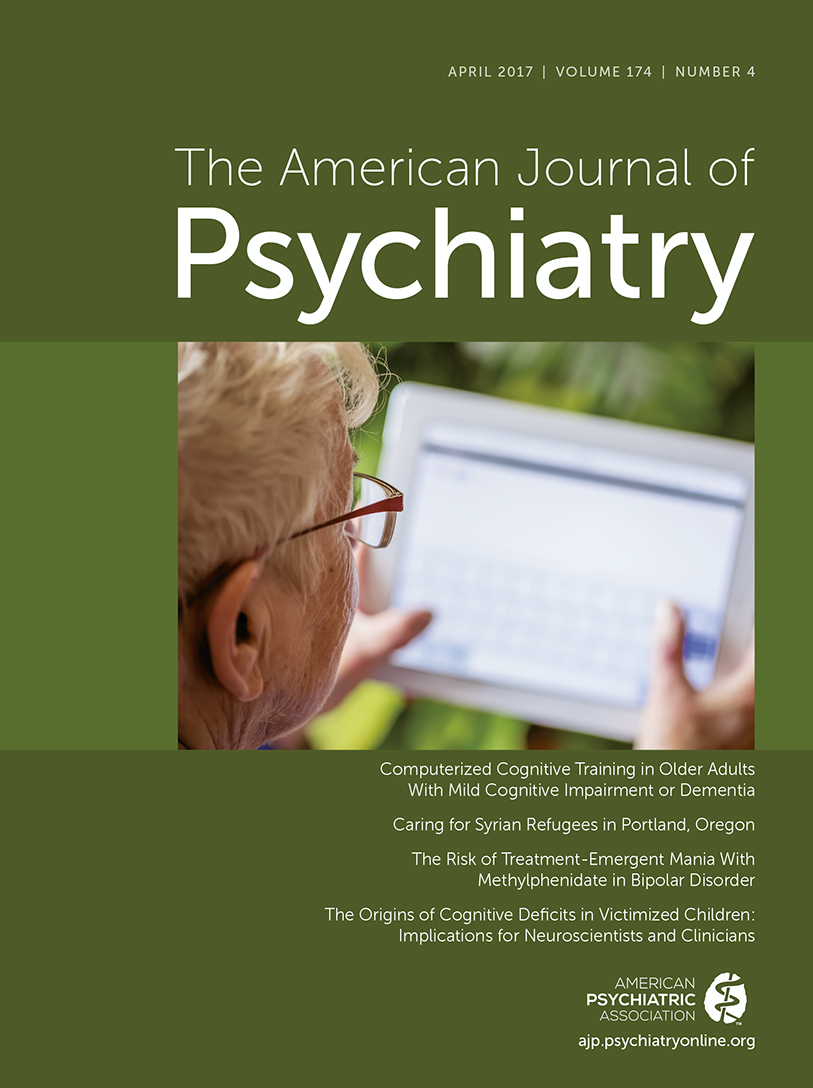Computerized Cognitive Training in Older Adults With Mild Cognitive Impairment or Dementia: A Systematic Review and Meta-Analysis
Abstract
Objective:
Previous meta-analyses indicate that computerized cognitive training (CCT) is a safe and efficacious intervention for cognition in older adults. However, efficacy varies across populations and cognitive domains, and little is known about the efficacy of CCT in people with mild cognitive impairment or dementia.
Method:
The authors searched Medline, Embase, PsychINFO, CINAHL, and CENTRAL through July 1, 2016, for randomized controlled trials of CCT in older adults with mild cognitive impairment or dementia. Overall cognition, individual cognitive domains, psychosocial function, and activities of daily living were pooled separately for mild cognitive impairment and dementia trials.
Results:
The overall effect on cognition in mild cognitive impairment across 17 trials was moderate (Hedges’ g=0.35, 95% CI=0.20–0.51). There was no evidence of publication bias or difference between active- and passive-controlled trials. Small to moderate effects were found for global cognition, attention, working memory, learning, and memory, with the exception of nonverbal memory, and for psychosocial functioning, including depressive symptoms. In dementia, statistically significant effects were found on overall cognition (k=11, g=0.26, 95% CI=0.01–0.52) and visuospatial skills, but these were driven by three trials of virtual reality or Nintendo Wii.
Conclusions:
CCT is efficacious on global cognition, select cognitive domains, and psychosocial functioning in people with mild cognitive impairment. This intervention therefore warrants longer-term and larger-scale trials to examine effects on conversion to dementia. Conversely, evidence for efficacy in people with dementia is weak and limited to trials of immersive technologies.



